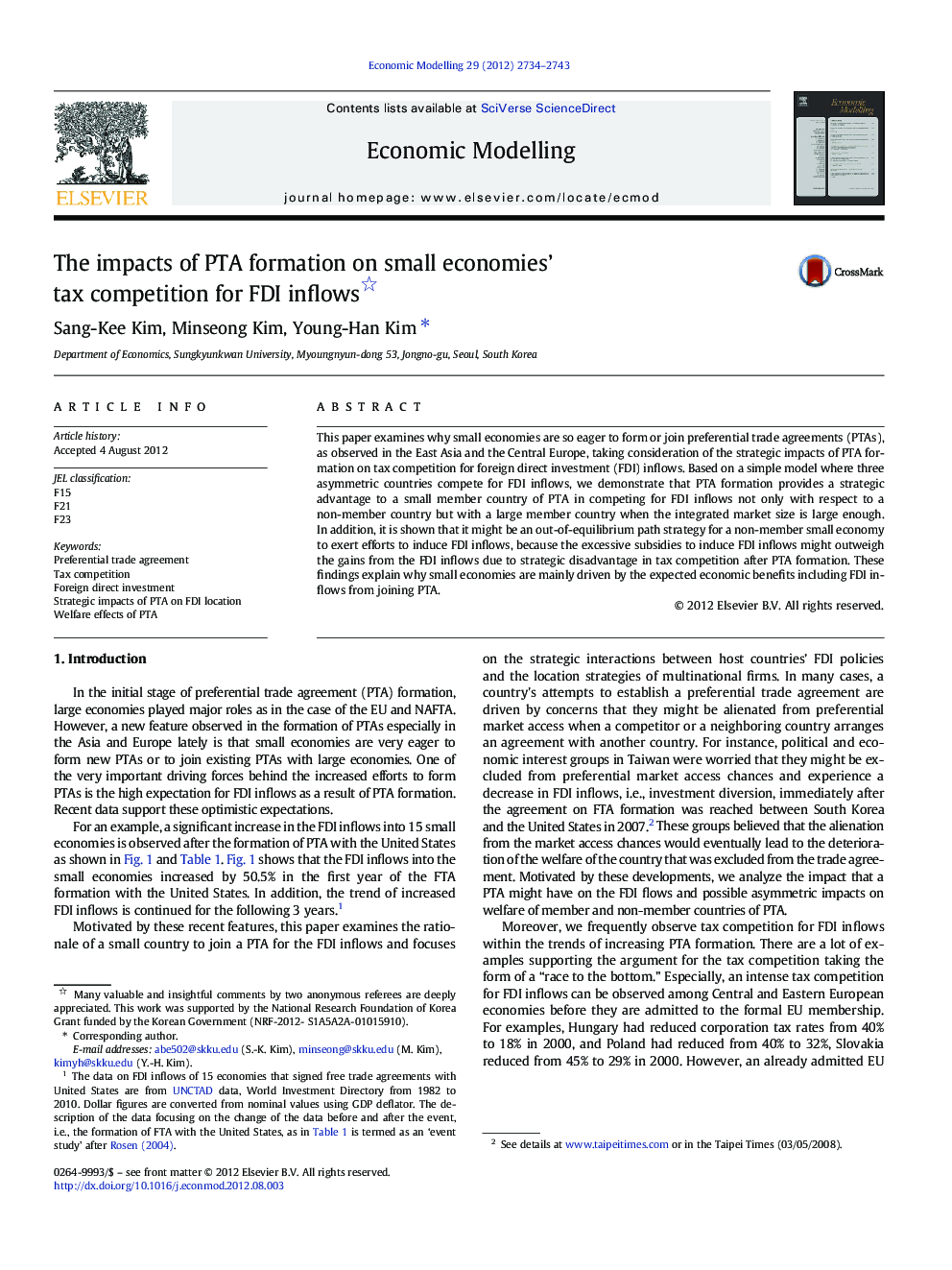| Article ID | Journal | Published Year | Pages | File Type |
|---|---|---|---|---|
| 5055128 | Economic Modelling | 2012 | 10 Pages |
This paper examines why small economies are so eager to form or join preferential trade agreements (PTAs), as observed in the East Asia and the Central Europe, taking consideration of the strategic impacts of PTA formation on tax competition for foreign direct investment (FDI) inflows. Based on a simple model where three asymmetric countries compete for FDI inflows, we demonstrate that PTA formation provides a strategic advantage to a small member country of PTA in competing for FDI inflows not only with respect to a non-member country but with a large member country when the integrated market size is large enough. In addition, it is shown that it might be an out-of-equilibrium path strategy for a non-member small economy to exert efforts to induce FDI inflows, because the excessive subsidies to induce FDI inflows might outweigh the gains from the FDI inflows due to strategic disadvantage in tax competition after PTA formation. These findings explain why small economies are mainly driven by the expected economic benefits including FDI inflows from joining PTA.
⺠We examine why small economies join preferential trade agreements. ⺠PTA formation provides a strategic advantage to a small member country of PTA. ⺠A non-member small economy does not have an incentive to induce FDI inflows.
